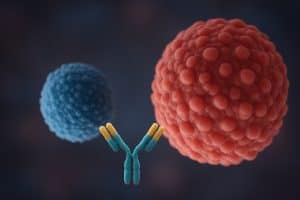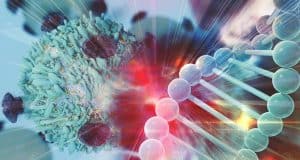
‘Angelina effect’ sees BRCA tests soar in UK
pharmafile | September 19, 2014 | News story | Medical Communications, Research and Development, Sales and Marketing | Cancer, angelina jolie, brac1, brad, breast, mastectomy
Referrals for testing for breast cancer risk more than doubled across the UK, after Oscar-winning American actress Angelina Jolie announced last year that she tested positive for a BRCA1 gene mutation and underwent a double mastectomy.
This is according to new research from published in the journal Breast Cancer Research this week, which says that the rise in UK referrals for the test continued through to October 2013, long after her announcement was made in May last year.
Myriad Genetics’ BRACAnalysis test found that Jolie had the BRCA1 mutation – and an 87% chance of developing the disease that had killed her mother.
She wrote an op-ed piece in an American newspaper stating that given these findings, she had decided to have both of her breasts removed in order to lower her risk of getting the disease in later life.
Many had believed that her decision to go public would increase those seeking the BRCA test, and this new study shows that this indeed has been the case.
The research also found that far from these being women with unfounded concerns (the so-called ‘worried well’) it was in fact women with a family history of breast cancer, which translated into appropriate referrals for testing. This study was funded by the Breast Cancer Campaign charity.
News stories can have short-term effect on health-seeking behaviour, but researchers led by Professor Gareth Evans from Genesis Breast Cancer Prevention and St Mary’s Hospital, Manchester, wanted to see if there was a lasting effect.
They assessed data from 12 family history clinics and nine regional genetic centres in the UK. They found that there was a two and a half-fold increase in referrals by their GPs for June and July 2013 immediately after the actress’ announcement, compared to the same two months in 2012.
This rise in referrals continued from August to October with a two-fold increase over the same period the previous year. The researchers believe that during this period of increased interest, there was no greater proportion of inappropriate referrals by GPs.
‘Glamour effect’
Evans says: “Although there was concern that the increase in attendance following Ms Jolie’s announcement might have been from the ‘worried well’ coming back for an early repeat screen, our research found that the opposite was true. A higher proportion was from women who were late for their test, rather than those who were coming back early.”
The researchers believe that Jolie’s announcement has made people more aware of the risk of a family history of cancer, and the risk-reducing strategies that can be taken. They think that more work should be done to improve awareness and access to family cancer services.
Evans explains: “Angelina Jolie stating she has a BRCA1 mutation and going on to have a risk-reducing mastectomy is likely to have had a bigger impact than other celebrity announcements, possibly due to her image as a glamorous and strong woman. This may have lessened patients’ fears about a loss of sexual identity post-preventative surgery and encouraged those who had not previously engaged with health services to consider genetic testing.
“These high-profile cases often mean that more women are inclined to contact centres such as Genesis – and other family history clinics – so that they can be tested for the mutation early and take the necessary steps to prevent themselves from developing the disease.
“Of course, in some cases this may mean a risk-reducing mastectomy, however cancer preventing drugs, such as [generic hormonal cancer treatment] tamoxifen, and certain lifestyle changes like a healthy diet and more exercise, are also options which many women may consider.”
Ben Adams
Related Content

Central nervous system cancer metastases – the evolution of diagnostics and treatment
The current forms of immunotherapy, how T cell therapy works and what the future holds

BioMed X and Servier launch Europe’s first XSeed Labs to advance AI-powered antibody design
BioMed X and Servier have announced the launch of Europe’s first XSeed Labs research project, …

T-cell therapy – the evolution of cancer treatments
The current forms of immunotherapy, how T cell therapy works and what the future holds






